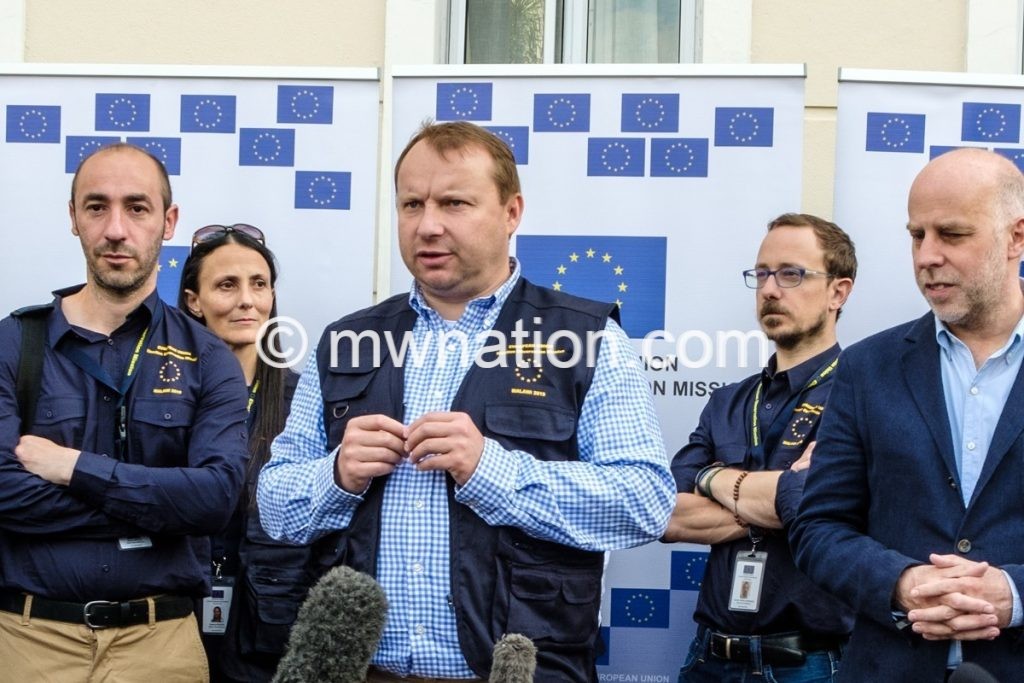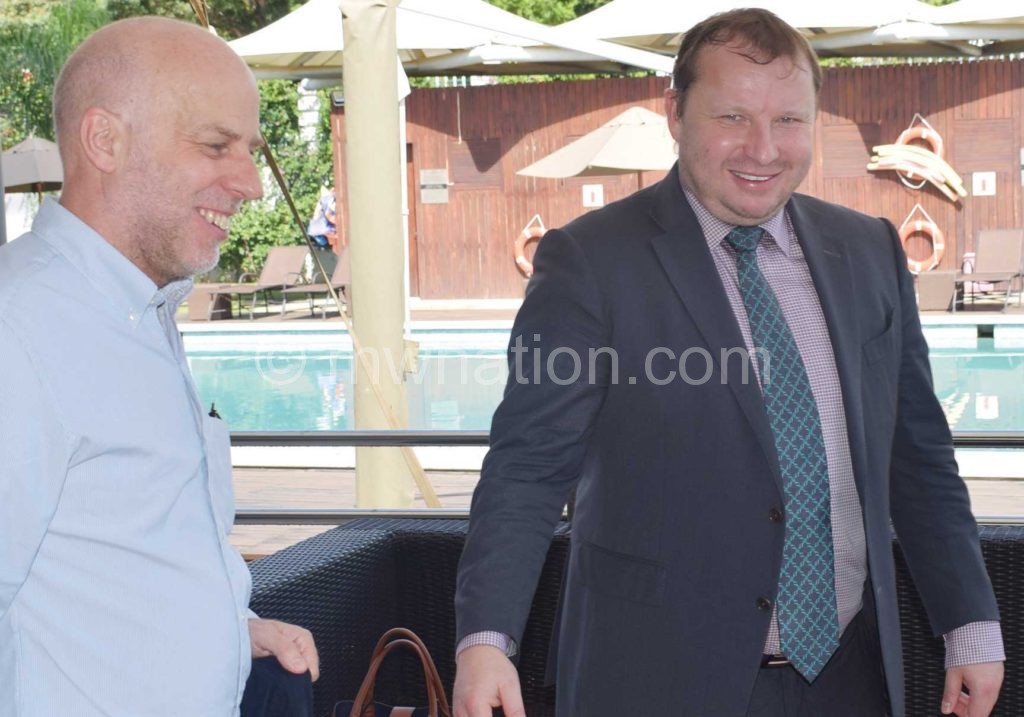EU defends mission
The European Union Elections Observer Mission (EU-EOM) says it will publish its controversial final report on the country’s disputed presidential elections next month.
The EU-EOM team, which was expected to release the report during its mission to the country at the invitation of Malawi Electoral Commission (MEC), flew out yesterday after receiving heavy criticism from some quarters of the Malawi society.

Both opposition leaders, Saulos Chilima and Lazarus Chakwera, who were presidential candidates for UTM and Malawi Congress Party (MCP), also pulled out from meetings with the EU-EOM team.
The two leaders said, in separate statements this week, that the mission was ill-timed as the country is still awaiting the Constitutional Court ruling on the May 21 presidential election results petition.
While the Malawi Law Society (MLS), in a separate statement on Wednesday, argued that the release of the election report was tantamount to undermining the ongoing court process.

In an interview with Weekend Nation yesterday, EU-EOM chief elections observer Miroslav Poche, a former member of European Parliament from Czech Republic, defended the mission saying the report was not aimed at influencing the outcome of the court case.
He said the EU-EOM agrees with the assessment that the political situation remains fragile in the country for the report’s release, but rejected assertions that the report could influence the outcome of the court case.
Poche explained that the team has postponed the publishing of the report following consultations with heads of missions of various EU member States based in the country and EU headquarters in Brussels, Belgium.
He said: “We decided to postpone our publishing of our final report not because of the public pressure, but we decided not to interfere in the public debate. The report has so many technical issues, recommendations on voting rules, use of State or public media, it could never interfere with the ongoing judicial process.”
He further said the report was initially slated for release in September last year, but was postponed due to the political unrest in the country.
“We will never interfere with ongoing judicial processes. We did [consider the situation], but, again, I must reiterate that the final report has nothing to do with the court decision, it deals with different things,” said Poche.
The EU-EOM head further explained that standard EU reports on elections start with the preliminary elections report which is released three days after voting followed by the final report which is released after three months of the vote at the minimum or six months after the vote.
He also defended the decision to release the preliminary report ahead of the final results of the elections, saying that the early departure was also part of EU’s standard practice.
“It’s part of our methodology, we usually leave three or four days after the elections. We couldn’t wait for the announcement of the results,” said Poche.
The mission chief also denied reports that the report had declared that the elections were ‘free and fair’, saying the team could not divulge the details of the final report but, in broad terms, the report tackled events that happened during the elections and reforms which must be undertaken.
He pointed out that the final report has a wide range of issues, not just registration, but also civil society, media freedom and voting.
According to the team leader, the EU conducts over 20 observer missions per year across the world and the institution has acted in the same manner in any part of the world.
The EU cancelled the release of the report on Wednesday following pressure from various corners of the country.
In a letter addressed to the team, MLS stated that the report could potentially undermine the court process—joining Chilima and Chakwera in calling for the EU to shelve its position.
“As you may be aware, dispute resolution is a final part of an electoral process. That case is now at an advanced stage and judgement is awaited with bated breath and significant public interest across the nation. It is expected that in line with its duty of independence and impartiality the judiciary will carefully manage the litigation before it and the court will determine the issues in accordance with the law as against the relevant facts and that the people of Malawi will abide by the due process set out in their laws,” wrote MLS in a letter signed by president Burton Mhango.





